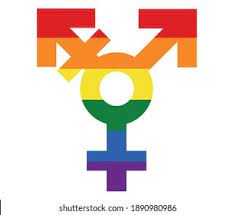Estrogen is a crucial hormone that plays a significant role in the overall health of individuals, particularly women. While it’s often associated with reproductive health, its influence extends far beyond, affecting mood, skin health, sleep, and even sexual desire. Understanding what low estrogen means and recognizing its symptoms can help you take control of your health and well-being. In this article, we’ll explore low estrogen symptoms and their impacts on various aspects of life.
Understanding Estrogen: Why It Matters for Your Health
Estrogen is one of the primary female sex hormones, responsible for the development and regulation of the female reproductive system and secondary sexual characteristics. It’s produced mainly in the ovaries and plays a vital role in regulating the menstrual cycle, supporting bone health, and maintaining cardiovascular function. Estrogen levels naturally fluctuate throughout a woman’s life, but significant drops can lead to various health issues.
Low estrogen levels can occur due to several factors, including age, menopause, certain health conditions, and lifestyle choices. Understanding the importance of estrogen in your body can help you recognize when something might be off. It’s essential to pay attention to the signs and symptoms that could indicate low estrogen levels, as they can significantly affect your quality of life.
Common Symptoms of Low Estrogen: What to Watch For
The signs of low estrogen can manifest in many ways, affecting both physical and emotional well-being. Common symptoms include irregular or missed periods, hot flashes, and night sweats. These symptoms are often experienced during menopause when estrogen production declines, but they can also occur at other life stages or due to certain medical conditions.
Another symptom to watch for is vaginal dryness or discomfort during intercourse, which can significantly impact sexual health and intimacy. Keeping track of these signs can provide valuable insights into your hormonal health and prompt you to seek further evaluation if needed.
Mood Swings and Low Estrogen: A Closer Look
Low estrogen levels can significantly impact mood, leading to symptoms like irritability, anxiety, and even depression. Estrogen is known to influence the production of serotonin, a neurotransmitter that helps regulate mood. When estrogen levels drop, this can disrupt serotonin levels, leading to emotional instability.
If you find yourself experiencing mood swings or feeling more anxious than usual, it could be worth considering your hormonal balance. While mood swings can stem from various sources, consistently low estrogen may be a contributing factor. Recognizing this link is vital to addressing emotional health proactively.
Physical Changes: What Low Estrogen Feels Like
Low estrogen can lead to various physical changes that may be subtle at first but can become more pronounced over time. Common physical symptoms include fatigue, weight gain, and changes in body composition. Women may notice increased fat accumulation, particularly around the abdomen, as estrogen plays a role in regulating fat distribution.
Additionally, low estrogen can lead to joint pain and stiffness. This discomfort can be particularly discouraging, especially for those who lead active lifestyles. Recognizing these physical changes as potential symptoms of low estrogen can be the first step in addressing them effectively.
Sleep Issues? Low Estrogen Could Be the Culprit
Many women experiencing low estrogen levels report sleep disturbances, including insomnia or difficulty staying asleep. Estrogen has a role in regulating sleep patterns, and its decline can lead to more restless nights. This can create a vicious cycle, as lack of sleep can further exacerbate mood swings and other health issues.
If you find yourself tossing and turning more often or waking up feeling unrested, it might be time to consider your hormone levels. Addressing low estrogen can help restore balance and improve sleep quality, leading to better overall health.
Low Estrogen and the Impact on Your Skin Health
One often-overlooked aspect of low estrogen is its effect on skin health. Estrogen helps maintain skin elasticity and hydration, so when levels drop, you might notice your skin becoming drier and less supple. This can lead to fine lines, wrinkles, and an overall dull complexion.
In addition to dryness, low estrogen can also trigger breakouts or worsen existing acne. Hormonal imbalances often influence skin conditions, and low estrogen levels are no exception. If you’re noticing changes in your skin that you can’t attribute to other factors, low estrogen might be at play.
Low Libido? It Might Be Low Estrogen at Play
A decrease in libido is a common symptom of low estrogen, which can be particularly distressing for many women. Estrogen is crucial for maintaining sexual desire and facilitating arousal. When levels drop, you may notice a decline in interest in sexual activity, which can affect relationships and self-esteem.
Understanding that this change is often hormonal rather than personal can ease some of the emotional burden. There are various options to address low libido related to low estrogen, including lifestyle changes, therapy, and hormonal treatments. Keeping the lines of communication open with your partner can also help navigate this sensitive issue.
When to Seek Help: Talking to Your Doctor About Symptoms
If you suspect you might have low estrogen levels based on the symptoms you’ve been experiencing, it’s important to consult with your healthcare provider. They can conduct tests to assess your hormone levels and discuss potential treatment options tailored to your needs. It’s crucial to address these symptoms before they lead to more significant health concerns.
Remember, you don’t have to go through this alone. Open communication with your doctor can lead to effective strategies for managing symptoms and improving your overall quality of life. Whether it’s lifestyle changes, hormone therapy, or other treatments, taking that first step can make all the difference.
Low estrogen can impact various aspects of life, from mood and sleep to physical health and libido. Recognizing the symptoms and understanding their implications is crucial for taking charge of your well-being. If you suspect your estrogen levels may be low, don’t hesitate to seek help from a healthcare professional. Prioritizing your health and addressing any hormonal imbalances can lead to a more vibrant and fulfilling life. Remember, you’re not alone on this journey—understanding your body is the first step to feeling your best!


